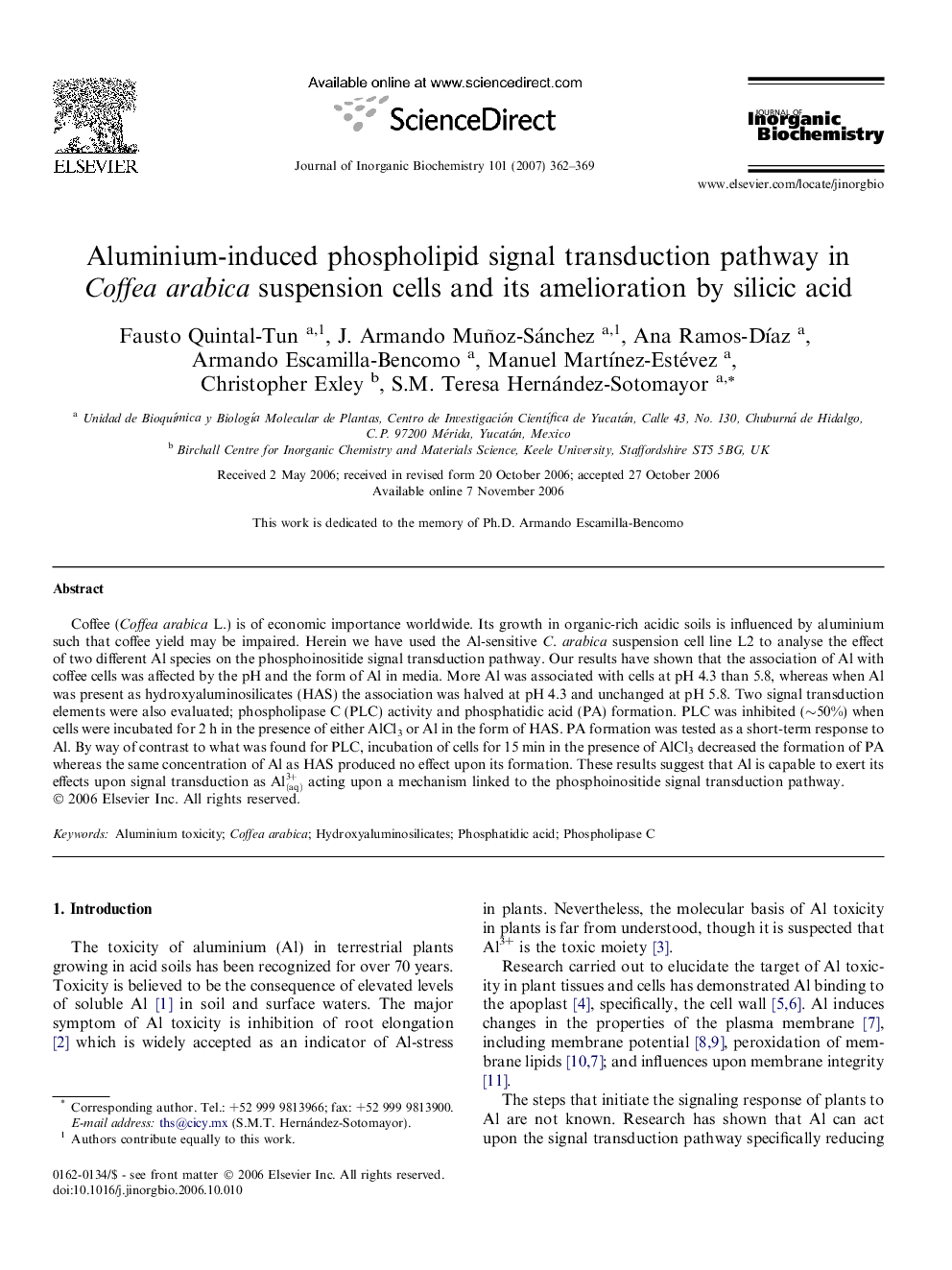| Article ID | Journal | Published Year | Pages | File Type |
|---|---|---|---|---|
| 1317209 | Journal of Inorganic Biochemistry | 2007 | 8 Pages |
Coffee (Coffea arabica L.) is of economic importance worldwide. Its growth in organic-rich acidic soils is influenced by aluminium such that coffee yield may be impaired. Herein we have used the Al-sensitive C. arabica suspension cell line L2 to analyse the effect of two different Al species on the phosphoinositide signal transduction pathway. Our results have shown that the association of Al with coffee cells was affected by the pH and the form of Al in media. More Al was associated with cells at pH 4.3 than 5.8, whereas when Al was present as hydroxyaluminosilicates (HAS) the association was halved at pH 4.3 and unchanged at pH 5.8. Two signal transduction elements were also evaluated; phospholipase C (PLC) activity and phosphatidic acid (PA) formation. PLC was inhibited (∼50%) when cells were incubated for 2 h in the presence of either AlCl3 or Al in the form of HAS. PA formation was tested as a short-term response to Al. By way of contrast to what was found for PLC, incubation of cells for 15 min in the presence of AlCl3 decreased the formation of PA whereas the same concentration of Al as HAS produced no effect upon its formation. These results suggest that Al is capable to exert its effects upon signal transduction as Al(aq)3+ acting upon a mechanism linked to the phosphoinositide signal transduction pathway.
